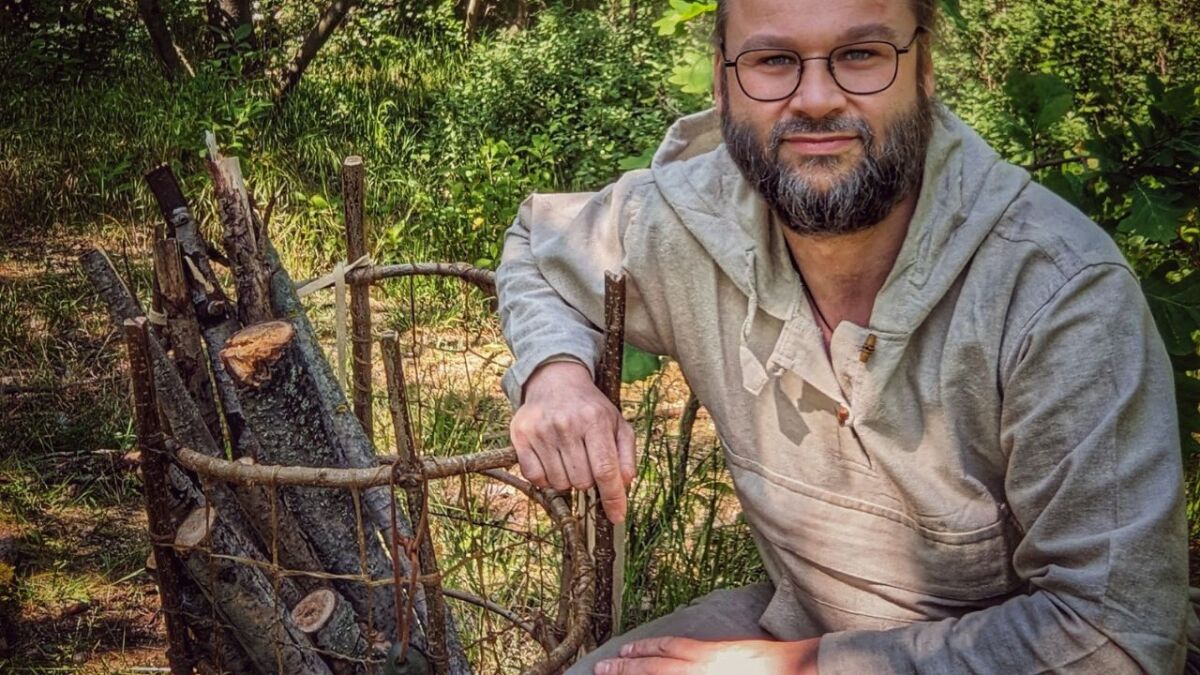
Survival or Life Why I am a Wilderness Mentor - and not a Survival Trainer
👉 The key facts from this guide
- I prefer the title "Wilderness Mentor" instead of "Survival Trainer" because I see life in the wilderness as an opportunity to lead a more complete, authentic, and fulfilling life - not just as a survival game.
- It is essential to learn wilderness skills not out of fear, but out of pure joy and curiosity - which can help to feel calmer and more grounded, regardless of what challenges life brings.
- I developed a deep connection to nature through practices such as seeking a "sit spot" in nature, aimless wandering, and giving thanks.
- Engaging with the history, lifestyles, and learning of indigenous peoples has taught me a lot about their wise and respectful approach to the earth.
- The wilderness is not our enemy that we must confront, but it is an integral part of the natural cycle in which we can fit and actively participate.
And then it clicked with me.
My gut feeling told me: This is the right path that was hidden from me before.
On this path, you will become happier, more grateful, more appreciative, and more connected with yourself and the world.
But what exactly happened there?
It all started with an insatiable fascination for survival life
The idea of surviving for days with only a few things in the deep forest sparked a tingling sense of adventure in me.
Imagine there is no home anymore, no conveniences of modern life - just you, your skills, and the undivided attention that the forest demands from you.
Hidden deep in my heart lay a daring dream, burning to become reality.
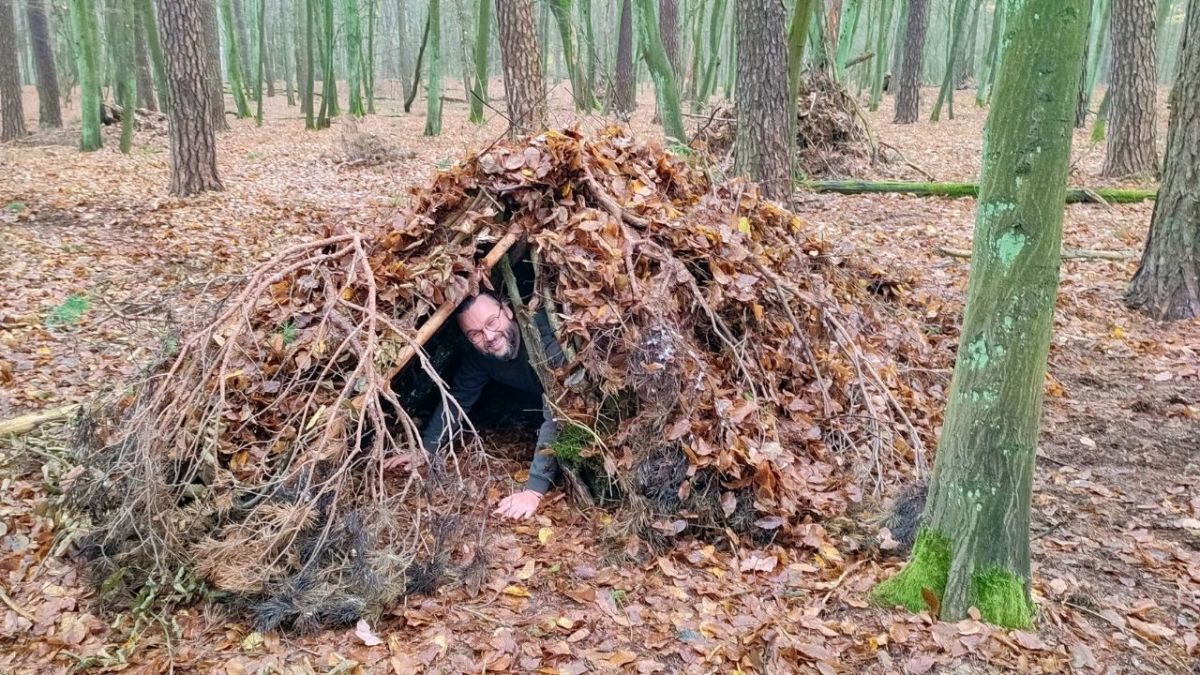
It was the desire to leave civilization and move into the wilderness.
The image of being constantly surrounded by the sounds of the wilderness, free from the constraints of modern life, was a simultaneously unsettling and captivating fantasy.
It all started with Survival
The first years of my new life revolved around learning the basics of wilderness survival.
The making fire without matches or a lighter, the recognizing and collecting edible wild plants, and the construction of a shelter in the forest were on my to-do list.
But these first years were not always rosy.
I remember icy nights when I was freezing, days when I could hardly think due to hunger, and the pitiful feeling when my painstakingly kindled ember went out with the bow drill.
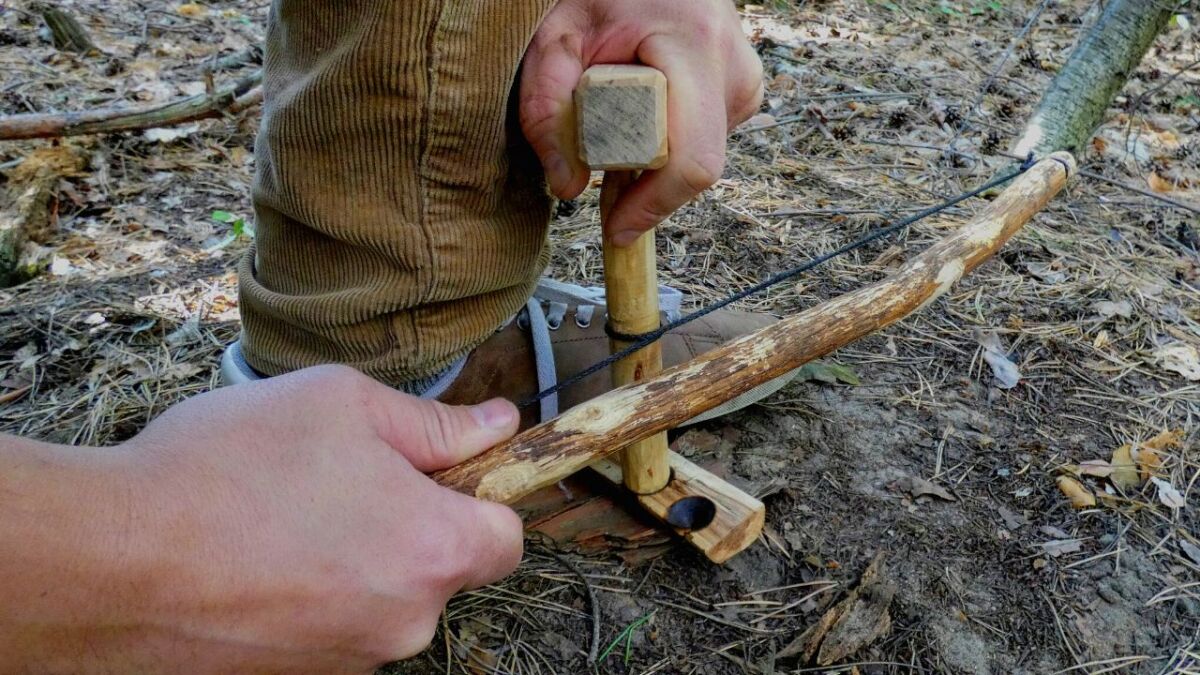
In these moments, I became aware of my vulnerability, and yet these difficulties led to valuable lessons and only reaffirmed my determination.
But after several years of learning and experiencing, a kind of inner emptiness set in.
Despite my acquired skills and the knowledge I had accumulated, something was missing.
I had the feeling that I was only scratching the surface.
What longing arose there?
With Bushcraft, it continued
The encounter with Bushcraft brought a wonderful expansion of my perspective.
It was no longer a fight for survival, but a step towards harmonious coexistence with nature.
The respectful interaction with the wilderness and the acquisition of new skills gave my life a new dimension.
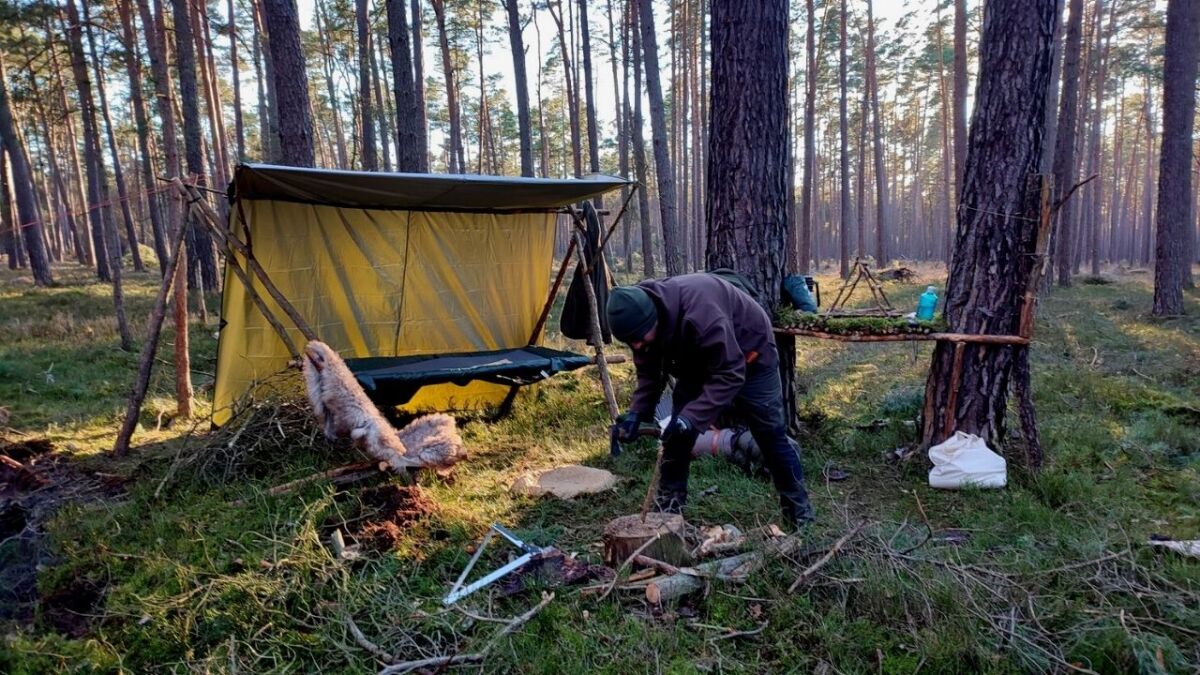
Instead of opposing the elements, I started to work with them.
Instead of mere survival, I began to thrive in the wilderness and to understand and respect the natural rhythms and patterns of my surroundings.
But despite these advances, I felt that something was still missing.
As valuable as the Bushcraft philosophy may be, it still seemed to me as if a piece of the puzzle was missing.
It still wasn't the complete arrival in the wilderness that I was looking for.
On the journey to true connection with nature
I had always believed that learning survival skills would automatically connect me more closely with nature.
And in a certain way, it did, but it wasn't the fulfilling feeling of unity that I longed for.
Then, in spring 2021, I had some kind of awakening.
I found myself in the midst of a group of people all seeking the same thing - a deeper, more meaningful connection to nature.
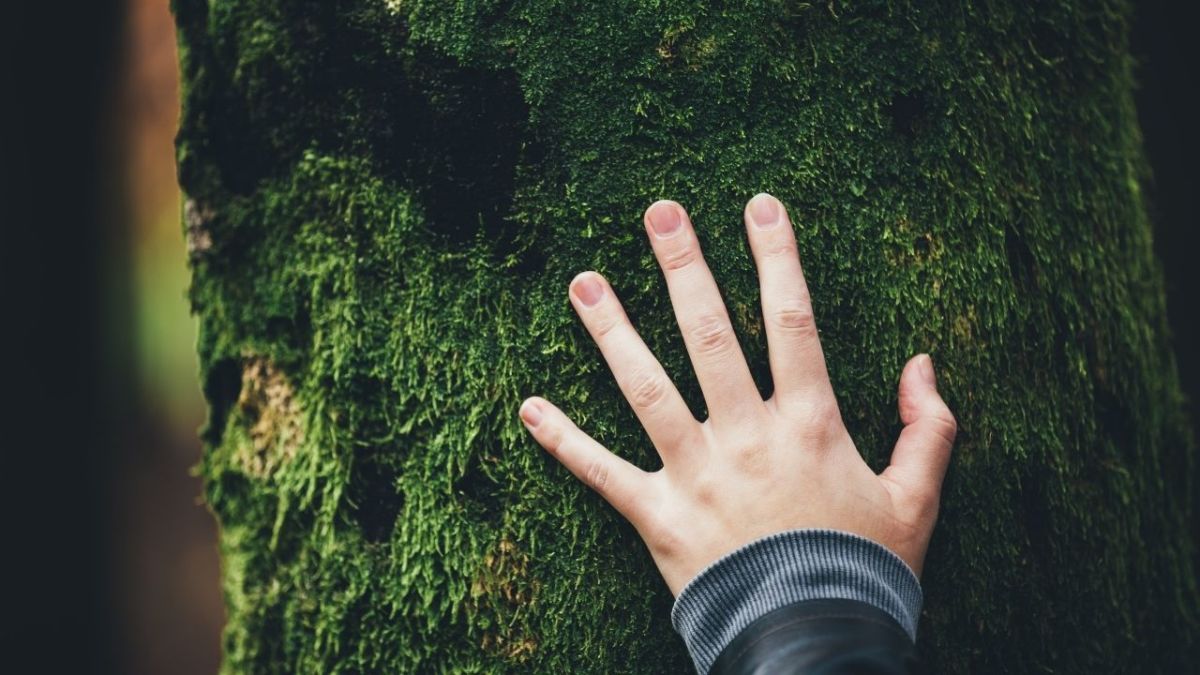
It was the first weekend of my training in wilderness education, and it felt like I was finally coming home after a long journey.
After completing the first module of my training, I had the feeling that an inner door had opened.
The intense feeling of belonging that I experienced was more than I had ever hoped for. It was as if I had found my true role in the world.
This training did not focus on endurance, as is often the case with survival training, but on the connection to nature.
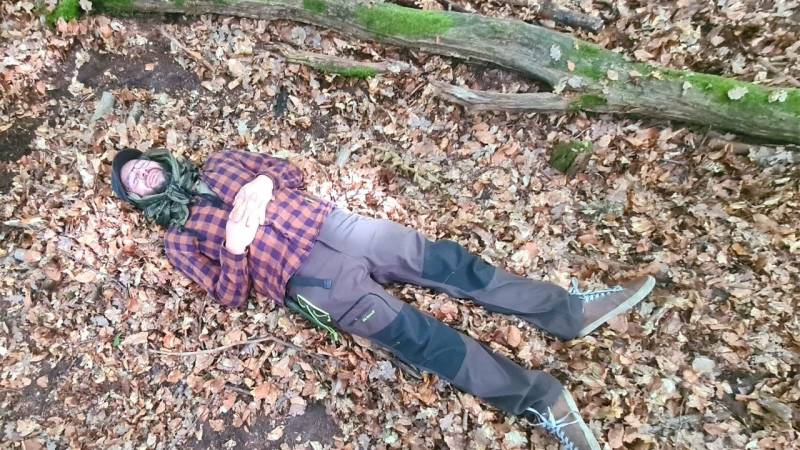
This seemingly small change in my mindset had a profound impact on my perspective on life in the wilderness.
Yes, I was still hungry, wet, and sometimes freezing like on my survival tours.
But these inconveniences paled in comparison to the deeper connection and beauty I experienced in the wilderness.
The Discovery of the Magic of the Wilderness
With my newly found perspective, I began to deepen my knowledge and experiences.
I immersed myself in a world of books that focused on the topic of nature connection. Authors like John Young, Tom Brown, Ray Mears, and Richard Louv became my silent mentors.
Your words painted an inspiring picture of life in the wilderness and helped me broaden my horizons.
I also started establishing my daily wilderness routines.
Visiting a "sitting place", a specific location in nature where I could sit quietly and observe every day, became one of my most important practices.
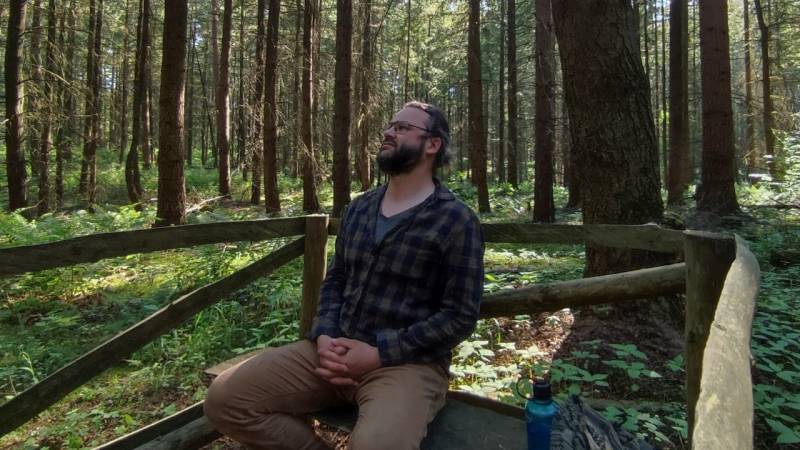
This quiet time in nature allowed me to sharpen my senses and perceive the subtle patterns and rhythms of the wilderness. It was as if I had started a deeper conversation with nature.
The Wandering, the aimless wandering in nature, has also become an essential part of my wilderness life.
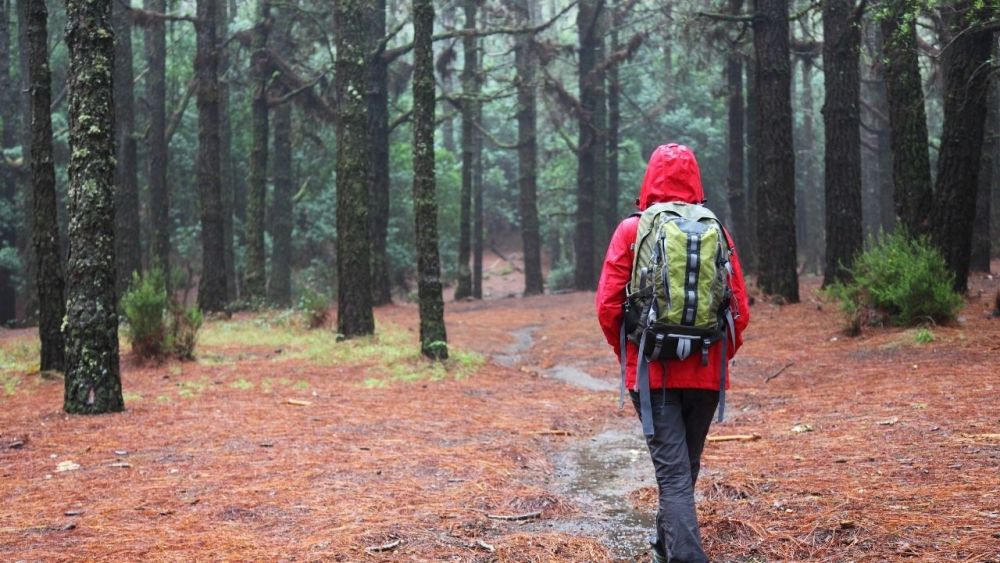
It allowed me to free myself from the often rigid structures of my previous life and surrender to the flow of nature.
Wandering is a powerful tool to clear my mind and fully immerse myself in the present.
But I also incorporated the acknowledgment into my life.
Step by step, I was able to appreciate simple things.
I recognized the true values of things. How valuable a warm shower can be, how valuable a soft bed, and how delicious food can be.
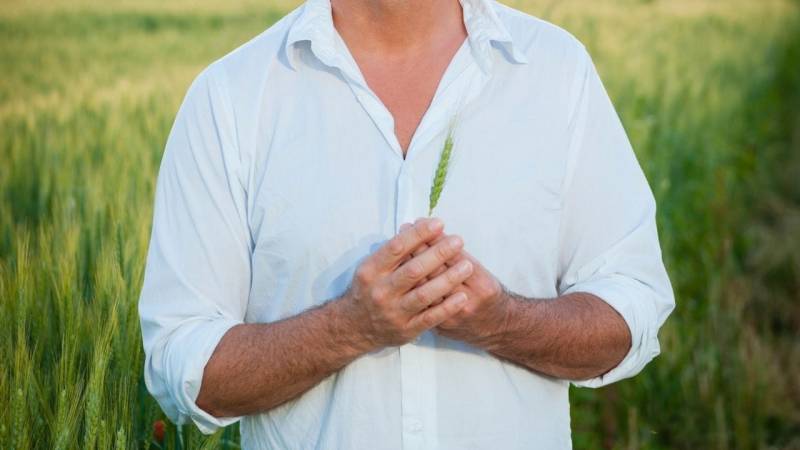
I participated in further modules of my wilderness education training, where I had the opportunity to meet other nature-loving people.
Each of them had their story to tell, their experiences to share, and I found a community of like-minded individuals who shared my passion and supported me on my journey.
In the midst of all these experiences, I also started a year-long course in tracking and discovered a whole new level of communication with nature.
Reading animal tracks was like learning a new language that the animals and I shared.
It was as if I had discovered a hidden channel through which I could connect even deeper with the animal world and thus with the wilderness.
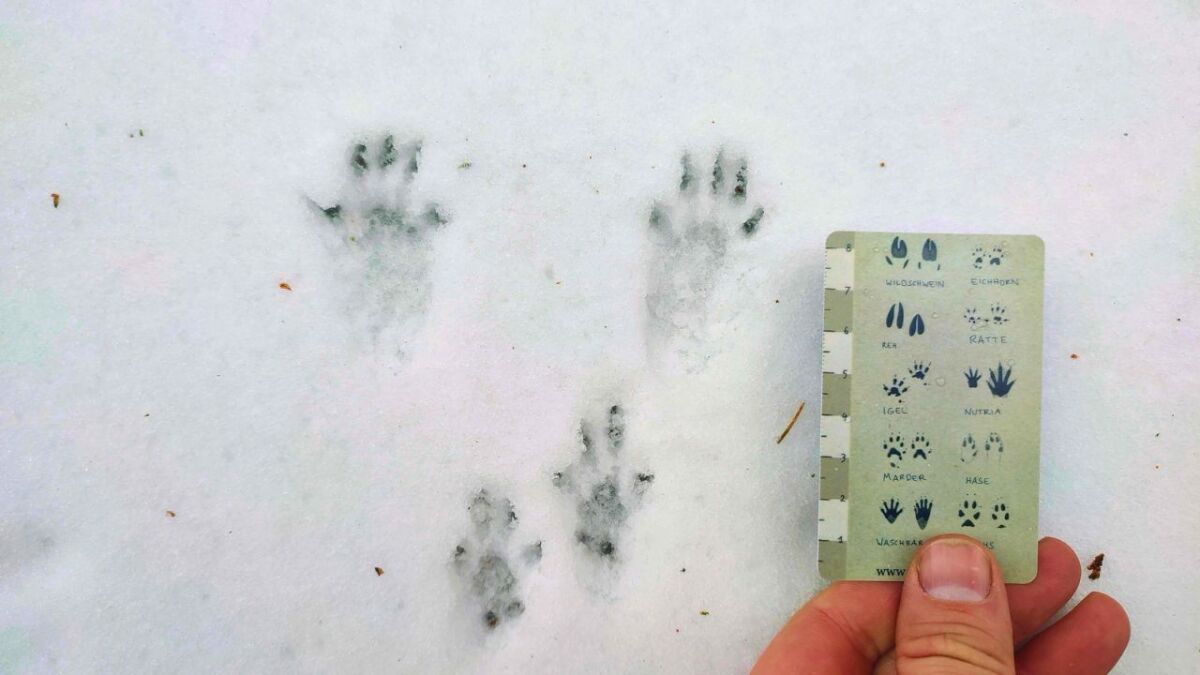
Immersing in the traditional craftsmanship
My enthusiasm for the wilderness grew, and I discovered a new aspect - traditional craftsmanship.
I was fascinated by the ancient technique of leather production.
It became a hobby, then a passion.
I tried both methods of leather tanning - the traditional fat tanning and the vegetable tanning with natural substances.
It was a special experience to hold the finished leather in my hands, which was made by my hands and with the help of natural materials.
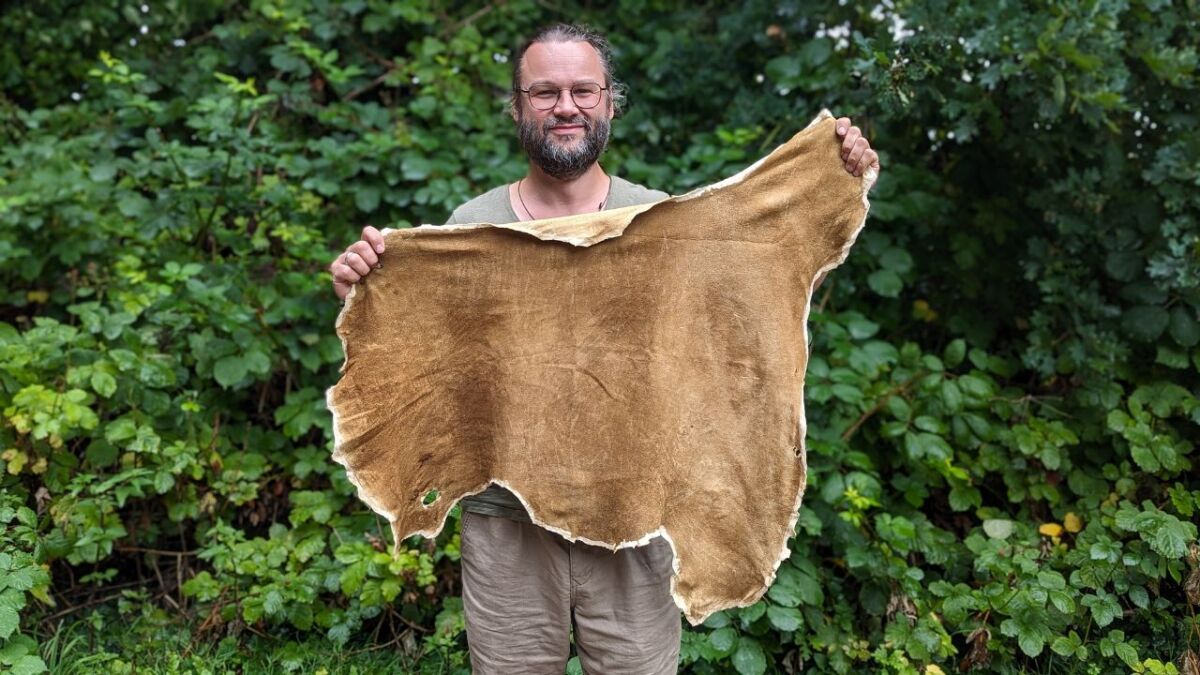
Parallel to that, I discovered the craft of nature.
I started making my own wilderness equipment.
Only native materials are used, such as leather, rawhide, wood, and plants - so no metals.
Every piece I made required patience and skill, and it was a joy every time to hold the finished product in my hands.
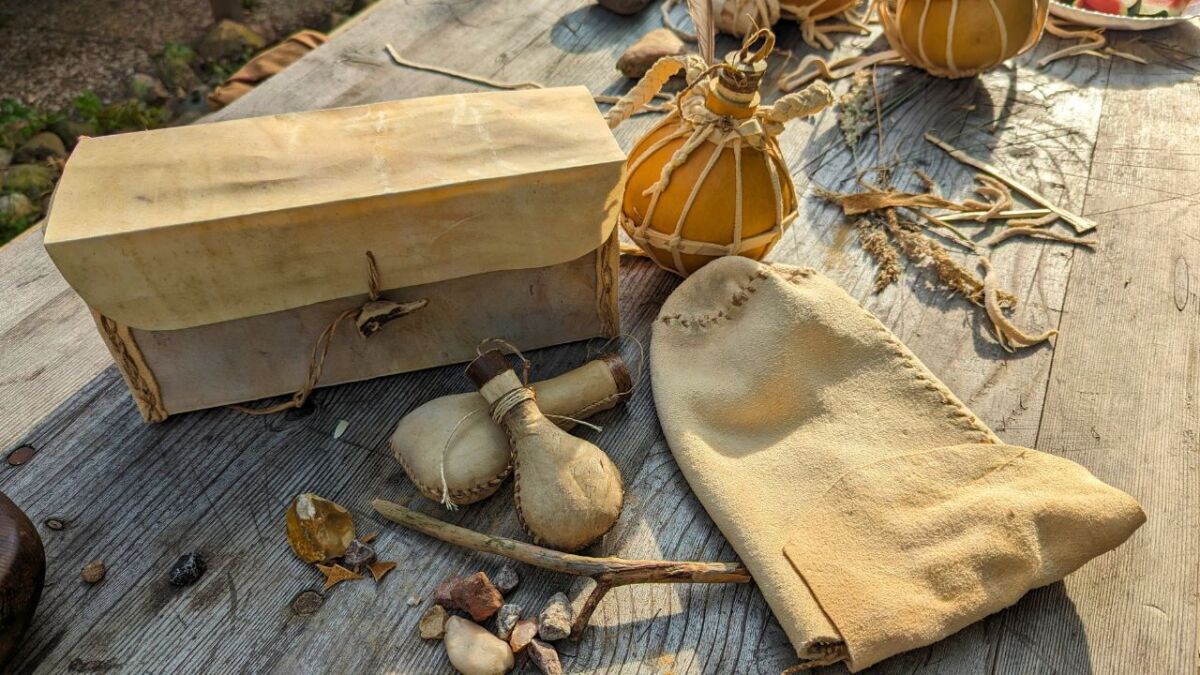
With every object made, with every piece of leather I tanned, I felt a deep connection to the craftsmen of the past.
This type of craftsmanship has almost been lost in our modern society. But here, in my small wilderness workshop, it lives on.
Learning and perfecting these skills was not only a way to create useful items for my wilderness adventures, but it was also a form of meditation - a way to connect even deeper with nature.
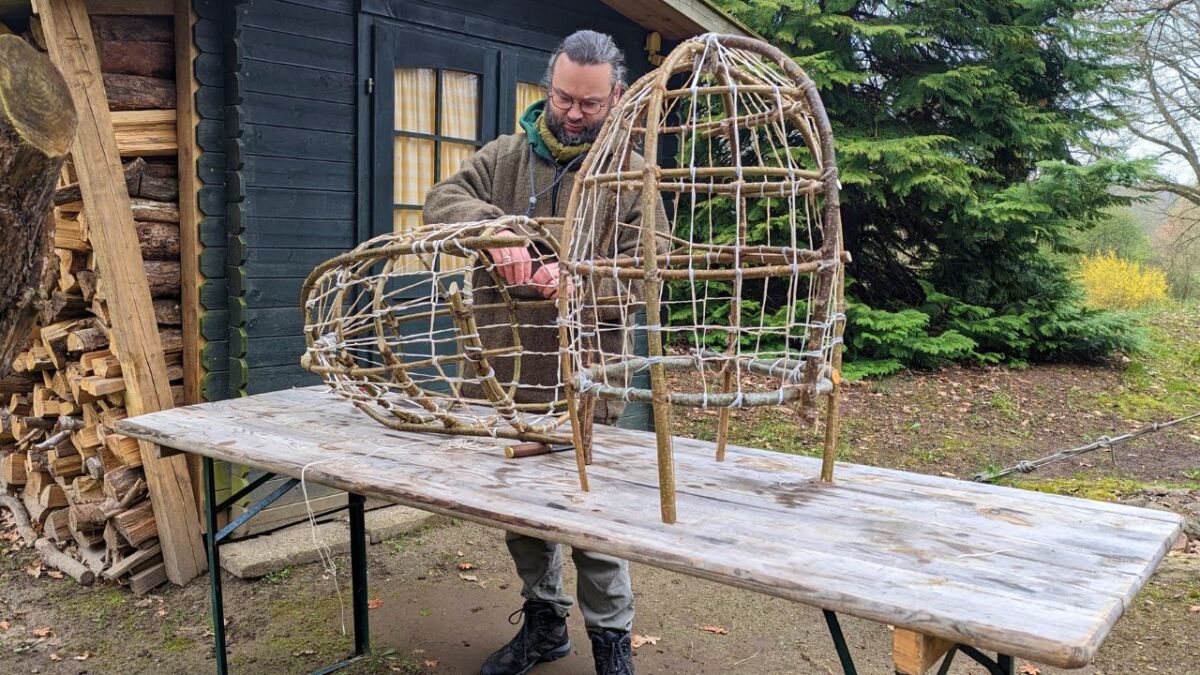
It reminded me that the simplest things are often the most valuable.
Furthermore, I began to delve deeply into the history, lifestyles, and learning of indigenous peoples.
I began to realize how deeply rooted their knowledge and connection with nature was, and how much our modern world could learn from their wise and respectful approach to the earth.
Your stories and traditions opened up a new perspective for me on life in the wilderness and on my role within this larger whole.
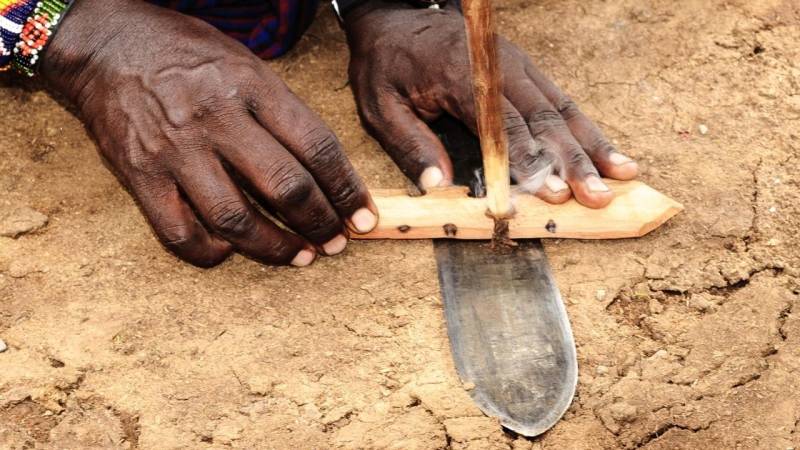
Life instead of just surviving
When people today refer to me as a "Survivalist" or "Survival Trainer," I feel compelled to cringe a little inside.
For me, terms like "Survivalist" feel limiting and don't really specify what I represent.
The term "survival" carries an association of struggle, an image of nature as an enemy, against which we must assert ourselves.
He creates a notion of conflict and resistance, rather than coexistence and harmony.
Instead, I tend to prefer the term "wilderness living".
He carries a different connection of thoughts, he expands the horizon beyond mere survival.
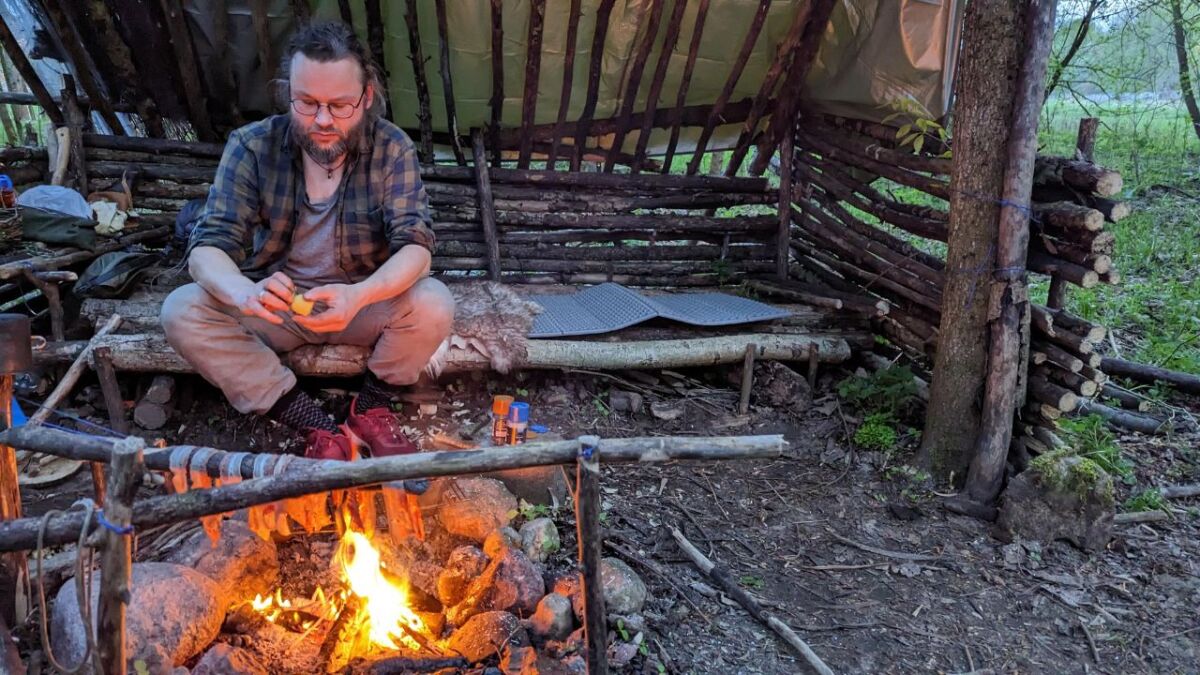
Life in the wilderness is so much more than just survival; it is not a state of mere endurance, but an active participation in the natural cycle.
It means becoming an integral part of the natural world, fitting into the pattern of life, and becoming an actor in its ever-changing scenery.
Furthermore, it is a rich and dynamic experience that provides us with an in-depth understanding of ourselves and our relationship to nature.
It not only teaches us how to exist, but how to thrive in harmony with our environment.
This is an active life for me, not just a reactive survival.
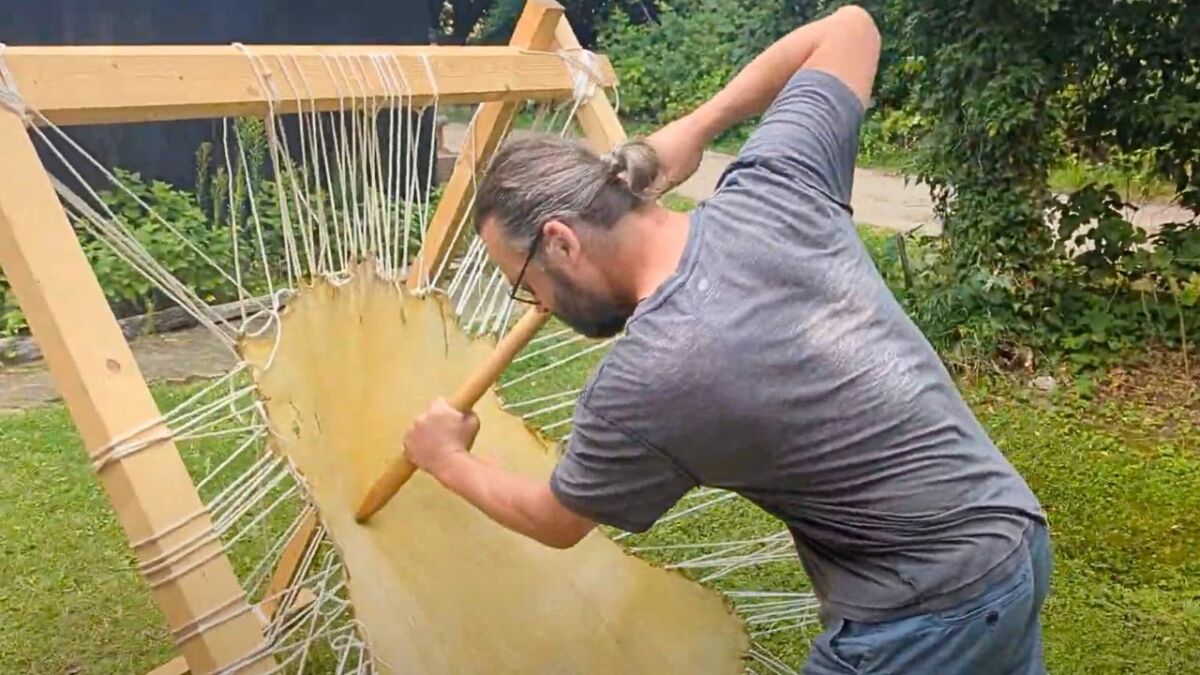
Strength through Knowledge
When I look around in my environment, I see many people who fight their battles every day.
You are marked by pandemics, increasingly frequent natural disasters, social injustices, wars, and other serious challenges.
In times like these, it is understandable that people feel anxious and uncertain.
It is easy to fall into a mentality of pure survival. However, this mindset only leads to more fear and stress.
But it is my firm belief that expanding our wilderness skills can help us transition from a state of fear to a state of empowerment.
The English word "Empowerment" perfectly captures the state.
Empowerment is like a beam of light breaking through the darkness.
Empowerment reminds us that we are not powerless, but capable of taking action.
It gives us the power to take action and create positive changes in our lives and in the world around us.
Maybe you will never be forced to build your own shelter, ignite a fire without a lighter, or gather your food.
But learning these skills out of pure joy and curiosity - and not out of fear - can help you feel calmer and more grounded, regardless of what challenges life has in store for you.
This is what I try to convey in "Survival Kompass" and in online courses like the "Wildimpuls annual program" (in German).
It's not just about the physical abilities of wilderness living.
It is also about discovering the wild places within ourselves.
Furthermore, it is about recognizing that we are all a part of nature and that if we embrace it, we can find a deeper, more meaningful connection to nature and ourselves.
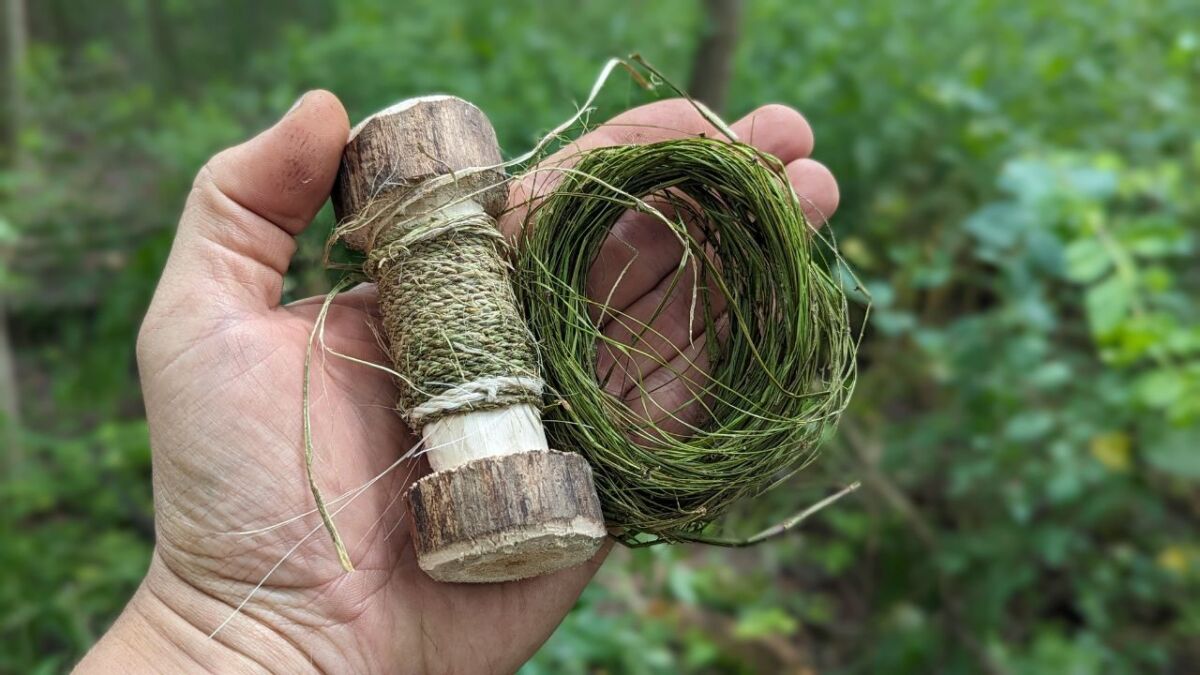
Natural, authentic, and species-appropriate living
And so I began to see life in the wilderness not as a survival game, but as an opportunity to lead a more complete, authentic, and fulfilling life.
It was no longer an escape from civilization, but a conscious immersion in the abundance and beauty of nature.
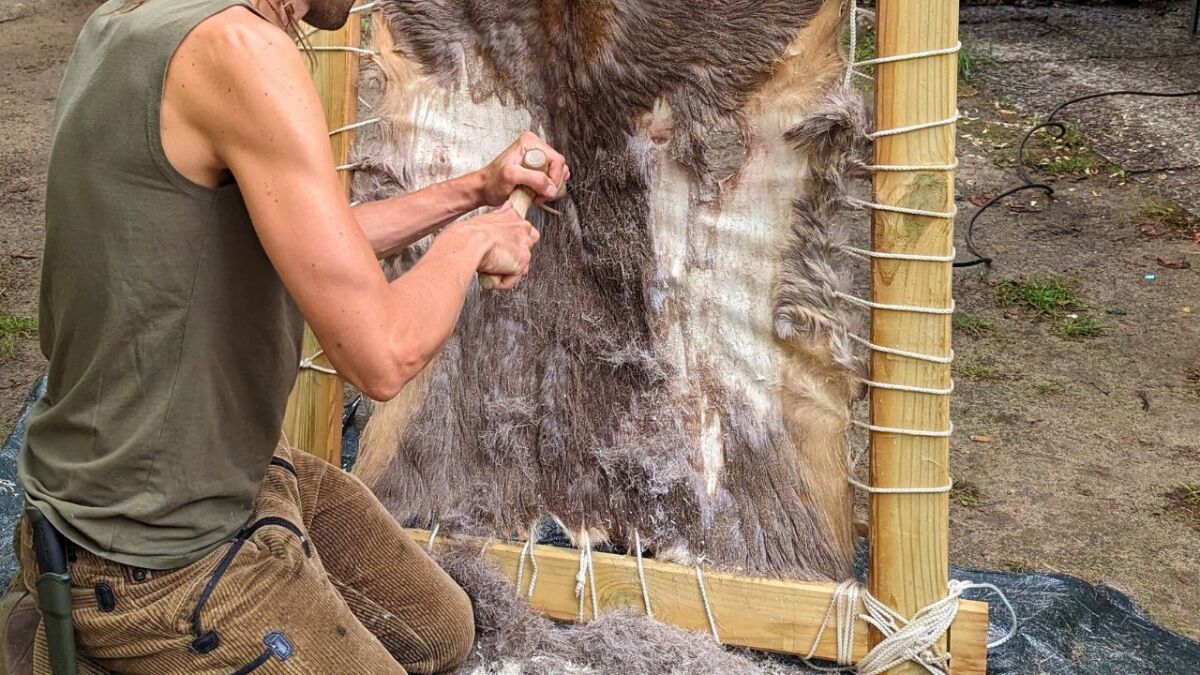
This is the path of "wilderness life" that I have discovered for myself.
A path that gave me the gift of empowerment, connecting with nature and finding a deeper connection with myself.
And that is what I want to teach others today:
I consider it not only essential to survive in the wilderness, but also to live with it and learn from it.
How to embrace the sounds, smells, and feelings of nature in one's heart and recognize them as an integral part of one's own life.
It goes beyond survival and bushcraft, towards a fulfilled wilderness life as a wilderness mentor (read how to become a wilderness mentor here).
Please don't hesitate to share your story or thoughts and feelings in the comments. Do you perhaps know this longing?


Author of the guide
Martin Gebhardt
Hey, I'm Martin. On my blog, you will learn the basics and numerous details about living in the wild. I think survival, bushcraft and the good life in nature are the keys to happiness. Find me here on Instagram or on YouTube. You can find more about my mission on the About Me page.
Was this guide helpful?
34 people found this guide helpful.
5.00 out of 5 points (34 Ratings)
Comments (0)
This post may contain affiliate links. So if you click on the links and make a purchase, I will receive a small commission at no additional cost to you. Click here, to learn more about it.


